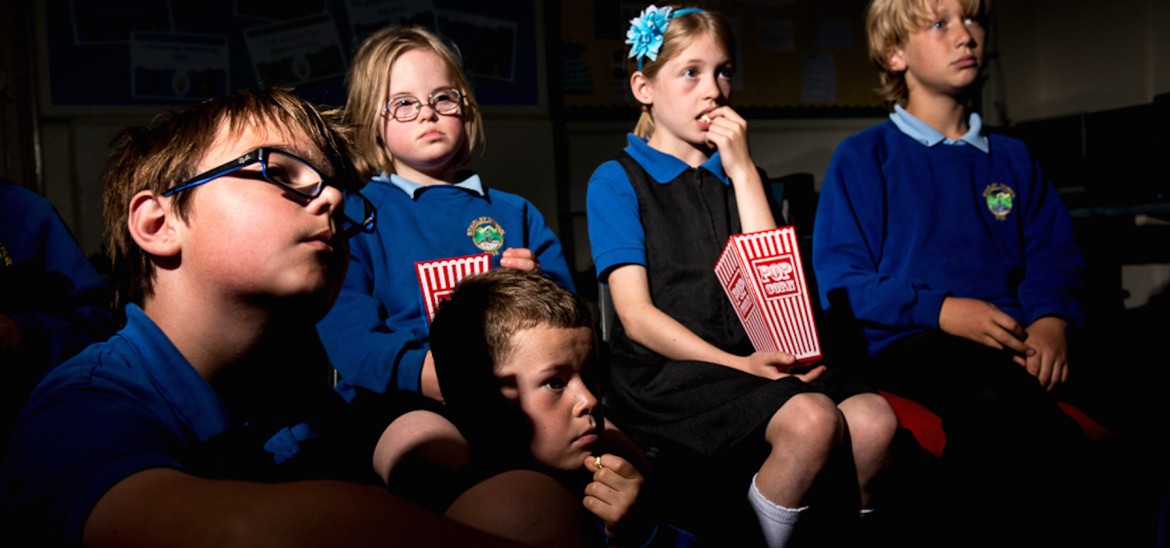Into Film Clubs
Find out everything you need to know about starting an Into Film Club.



Ashai is the Diversity Relationship Manager at Arts Council England for the east and southeast of England. With eleven years' experience of making innovative cultural education programmes accessible and upholding a commitment to equity in the arts, Ashai looks at how diversity can be put at the centre of every aspect of the arts in its creation, production, participation, decision making, careers and education.
Below, she discusses how film can be the perfect cultural education, and details how the Arts Council's Artsmark award can benefit schools.
I meet a lot of creatives in my job and one of my favourite questions to ask them is: "what was your first encounter with the arts?" Nearly everyone responds in the same way - by reminiscing about a moment from their childhood. Their eyes and smiles light up with excitement as they pinpoint the exact moment of inspiration as if it were yesterday; that drive that has pushed them to where they are today.
Film has long been a source of inspiration. Whilst writing this article I asked my film-loving grandmother about her first encounter with cinema. Within an instant, my gran began describing how her father had walked her down towards the coastline, passing the bustling market on the way to the regal looking Rex Cinema.
Although my grandmother could not recall the title of the film, she still remembers how she felt; describing the wonderful, magical experience that stayed with her and sparked her love of film.
74 years on from my grandmother's first cinematic adventure, film still holds the same entrancing power. It brings together many different art forms and neatly packages them up ready to enthral an audience - from the narrative and performance through to the editing, lighting, music, and theatre. Not only is film an incredible gateway into experiencing the arts, but it presents a platform that allows us to enjoy and learn from the diverse cultures it can represent through storytelling.
Film can also be a great way to engage children and young people from all backgrounds and social classes with learning. Into Film speaks of teachers using cinema to encourage their students to further embrace English, by asking them to write reviews about their favourite films. Such an inventive approach is welcomed by the Arts Council, as we too think of ways to creatively combine the arts and education sectors. One action has seen the launch of our Cultural Education Challenge, which calls for those working in the arts and education sectors to come together and share resources, and work more effectively to address gaps in diverse cultural education provision at a local level.
Artsmark is another initiative created to bring the two sectors together. As the Arts Council's flagship award, Artsmark helps schools to deliver high quality art and cultural education that broadens and enriches school's curricula.
Artsmark schools have the opportunity to gain access to exceptional resources and networks and can provide evidence that they're meeting the spiritual, moral, social and cultural (SMSC) requirements for Ofsted.
With thousands of schools already signed-up to Artsmark, we're proud and excited that so many are choosing to champion the arts in their schools. One way is through film, as shown by the successful pilot project in Hull that we recently ran with Into Film. However, much more work still needs to be done.
That's why we work closely with ten bridge organisations to ensure that schools are fully aware of how they can effectively incorporate the arts into their learning plans and better utilise local cultural organisations to introduce students to the practicalities of working with or within the creative industry. In addition, many of our National Portfolio Organisations also have dedicated programmes of work that engage children and young people.
Overall, whether schools choose to use dance, music or film to advance their students' learning we know how effective this can be. Schools often tell us that creative learning enhances a child's independent thinking, persistence, confidence, discipline and collaboration - all skills required to be a well-rounded individual. So, if you ever hear someone questioning why their child is watching a film at school, please remember the teacher that encourages their class to improve their English by writing film reviews. After all, we could soon be reading a national newspaper that is written by a student who grew to love words through the power of film.
Into Film CEO Paul Reeve contributed an article to Artsmark, further supporting cultural education through film, and discussing in more detail the Artsmark pilot project we recently ran in Hull.
Viewing 4 of 4 related items.

Find out more about our streaming service, designed specifically for UK schools.